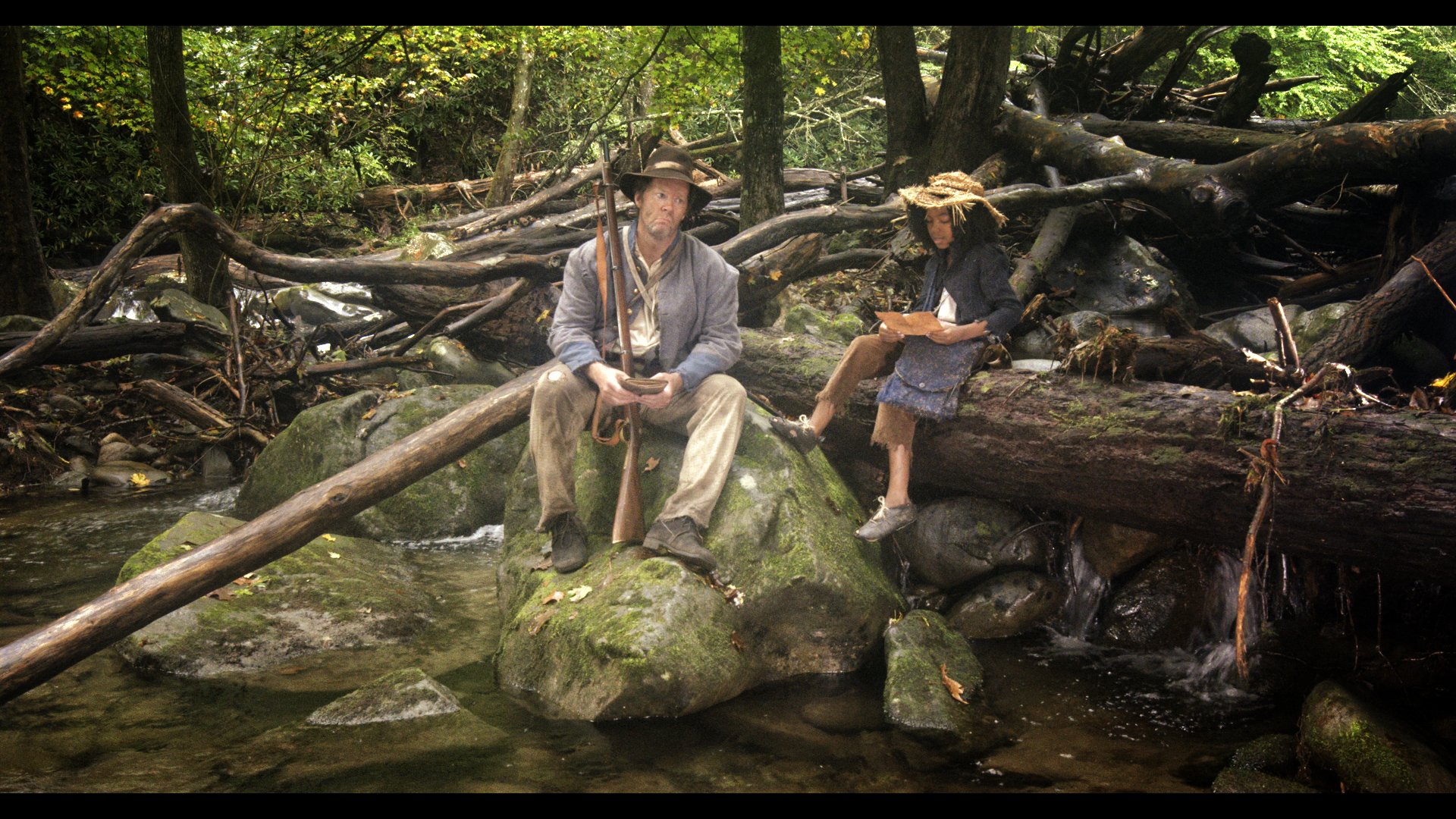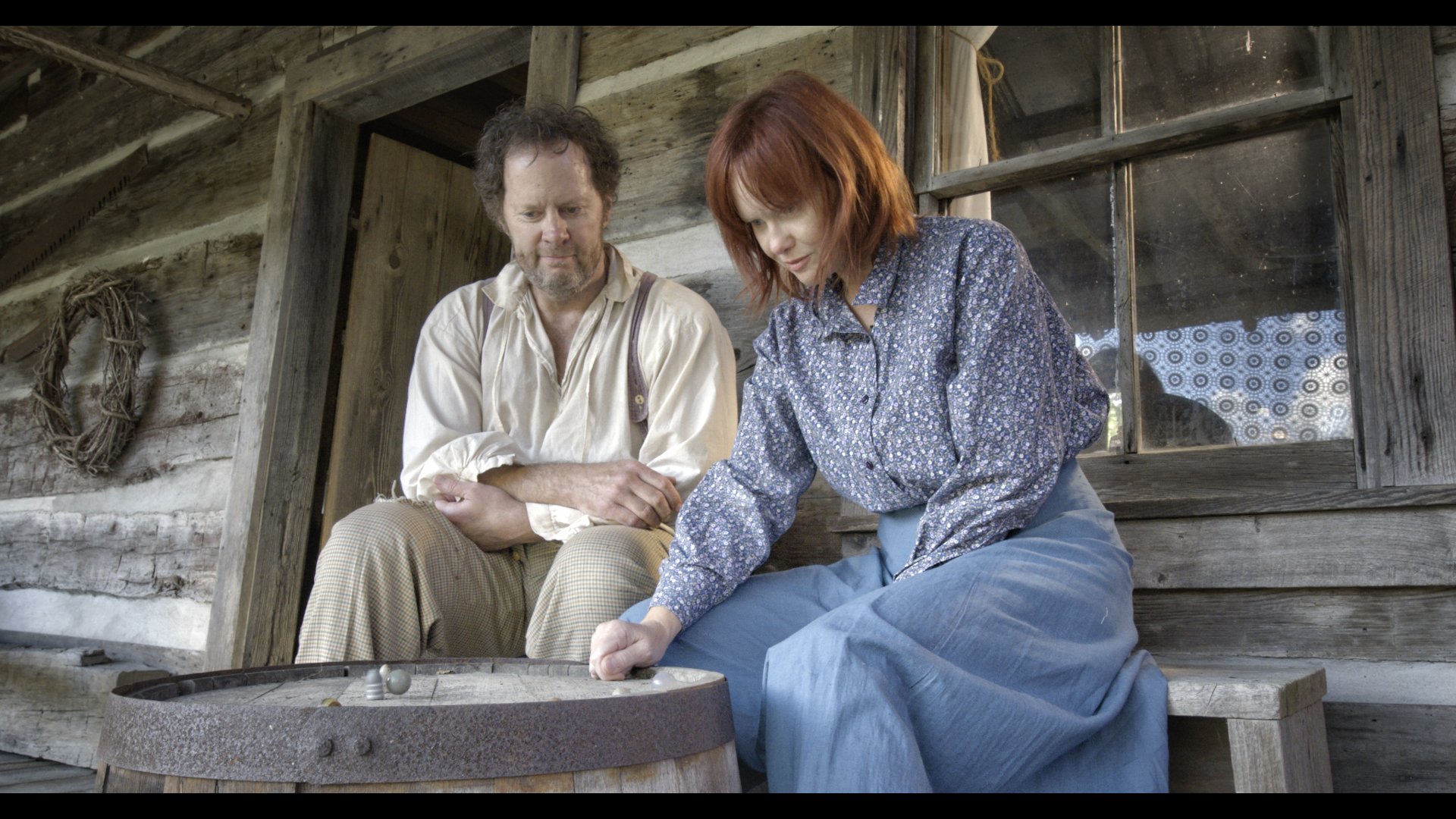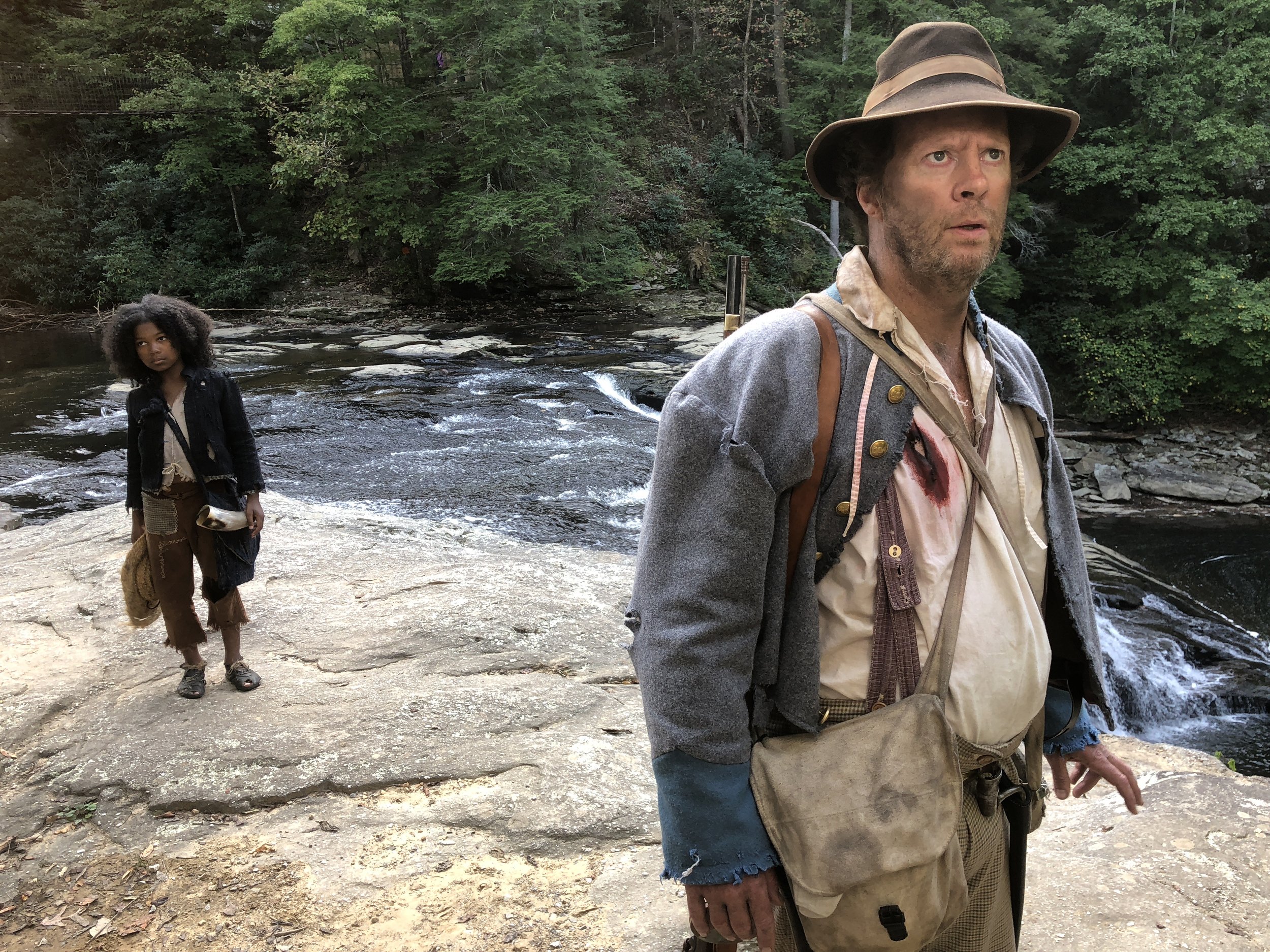Introduction
Jeremiah reads to the illiterate soldier, Samuel. From the feature film Marbles and Bullets, 2023. New Film Group, LLC. All Rights Reserved
Within the tapestry of civil rights and racial history in the United States, literacy and education have emerged as potent forces for empowerment and progress. This article explores the profound significance of literacy and education while drawing upon the insights of contemporary scholars. Furthermore, it examines how the film "Marbles and Bullets" delves into these themes, shedding light on the contrasting dynamics of literacy between Jeremiah, a literate and well-read freed slave child, and Samuel, an illiterate Confederate soldier whose lack of literacy becomes a barrier to love and inner peace.
The Empowering Gift of Literacy:
Jeremiah helps Samuel find his way through the letters he reads to him. From the feature film, Marbles and Bullets, New Film Group, LLC. All Rights Reserved 2023
Literacy holds transformative potential, providing individuals with the power to comprehend, express, and engage with the world. In "Marbles and Bullets," Jeremiah stands as a remarkable embodiment of literacy's power. Already literate and well-read, Jeremiah possesses a profound advantage that sets him apart. His ability to navigate the written word opens doors to knowledge, self-expression, and personal growth, empowering him to overcome adversity and forge his path forward.
Education as an Instrument of Civil Rights:
Jeremiah sees the universe in his hand. From the feature film, Marbles and Bullets, New Film Group, LLC. All Rights Reserved. 2023
Throughout American history, access to education has been an arena of contention and progress in the fight for civil rights. The film underscores this struggle through the character of Samuel, an illiterate Confederate soldier. Samuel's illiteracy becomes a symbolic barrier, representing the systemic denial of educational opportunities to marginalized individuals.
The Interplay of Love, Literacy, and Inner Peace:
Samuel and Adena play a game with marbles and bullets in the new feature film, Marbles and Bullets, New Film Group, LLC. All Rights Reserved, 2023.
Love and literacy intersect in powerful ways within the narrative of "Marbles and Bullets." Jeremiah's literacy becomes a source of strength, enabling him to facilitate love and connection. As Samuel grapples with illiteracy, his inability to read the letters from his wife creates a profound barrier, obstructing the fullness of their love and deepening his inner turmoil. Samuel's illiteracy, intertwined with his propensity for aggression and violence, ultimately underscores the emptiness of his power, leaving him yearning for inner peace that eludes him.
Racial Prejudice and the Destructive Force of Illiteracy:
Jeremiah and Samuel have to face the wilderness together. From the feature film, Marbles and Bullets, New Film Group, LLC. All Rights Reserved. 2023.
The film delves into the destructive force of illiteracy in the context of racial prejudice. Samuel's illiteracy catalyzes his resorting to racial epithets and wielding weapons when confronted with the unfamiliar or the unknown. His inability to understand and engage with different perspectives limits his capacity for empathy and compassion. "Marbles and Bullets" thus serves as a poignant reminder of the detrimental consequences of illiteracy, emphasizing the urgent need for education as a transformative force to dismantle prejudice and foster understanding.
The Journey Towards Equality in Education:
A scene from the feature film, Marbles and Bullets, New Film Group, LLC. All Rights Reserved. 2023.
In "Marbles and Bullets," the divergent literacy experiences of Jeremiah and Samuel invite reflection on the persistent disparities that exist today. The film prompts us to confront the systemic barriers that obstruct equitable access to education, advocating for comprehensive reforms that dismantle these barriers. By amplifying the transformative nature of education, "Marbles and Bullets" urges society to embrace educational equality as a crucial step towards a more just and inclusive future.
Conclusion:
A scene from the feature film, Marbles and Bullets, New Film Group, LLC. All Rights Reserved. 2023.
"Marbles and Bullets" weaves a poignant narrative that shines a light on the power dynamics of literacy and education. Through the contrasting experiences of Jeremiah and Samuel, the film illuminates the transformative potential of literacy, the barriers imposed by illiteracy, and the complex interplay of love, understanding, and inner peace. As we continue our journey toward equality and justice, let us remember the vital role that literacy and education play in dismantling systemic barriers and fostering a society built on empathy, understanding, and equal opportunities for all. By embracing the transformative power of literacy, we can navigate the complexities of our shared history, challenge prejudices, and work towards a brighter future.
Reflecting on the lessons offered by "Marbles and Bullets," one is inspired to advocate for comprehensive educational reforms that address disparities in access and quality. By prioritizing literacy and education, we empower individuals to overcome obstacles, transcend societal limitations, and contribute meaningfully to their communities.
A scene from the feature film, Marbles and Bullets, New Film Group, LLC. All Rights Reserved. 2023.
The film "Marbles and Bullets" serves as a poignant reminder of the significance of literacy and education in the pursuit of civil rights, understanding, and racial equality. Through the contrasting experiences of Jeremiah, a literate and well-read freed slave child, and Samuel, an illiterate Confederate soldier, the film unveils the transformative power of literacy, the barriers imposed by illiteracy, and the interplay of love, understanding, and inner peace. As we strive for a more inclusive and equitable society, let us embrace literacy and education as essential tools for dismantling systemic barriers, fostering empathy, and paving the way for a brighter future for all.
Quoted Authors:
1. Johnnetta B. Cole: This is a reference to Johnnetta Betsch Cole. See the works of Johnnetta B. Cole.
2. Beverly Daniel Tatum: The quote attributed to Beverly Daniel Tatum is a paraphrase. For a more in-depth understanding of her ideas, you may refer to her notable work: Tatum, B. D. (2003). "Why Are All the Black Kids Sitting Together in the Cafeteria?" And Other Conversations About Race. Basic Books.
3. Ibram X. Kendi: The article mentions Ibram X. Kendi's contributions to the understanding of the civil rights movement. For a deeper exploration of his ideas, you can refer to his influential work: Kendi, I. X. (2019). How to Be an Antiracist. One World.
4. Michelle Alexander: Michelle Alexander is referenced for her book "The New Jim Crow." You may consult the following work: Alexander, M. (2010). The New Jim Crow: Mass Incarceration in the Age of Colorblindness. The New Press.
5. Pedro Noguera: Pedro Noguera is mentioned in relation to his expertise in education. For a comprehensive understanding of his perspectives, you can explore his works, including: Noguera, P. (2003). City Schools and the American Dream: Reclaiming the Promise of Public Education. Teachers College Press.
TL;DR:
Discover the transformative power of literacy and education in the film "Marbles and Bullets." Explore civil rights, racial history, and the contrast between Jeremiah's literacy and Samuel's illiteracy. Unveil the barriers to love and inner peace while advocating for equitable access to education. Learn more at www.marblesandbullets.com.







